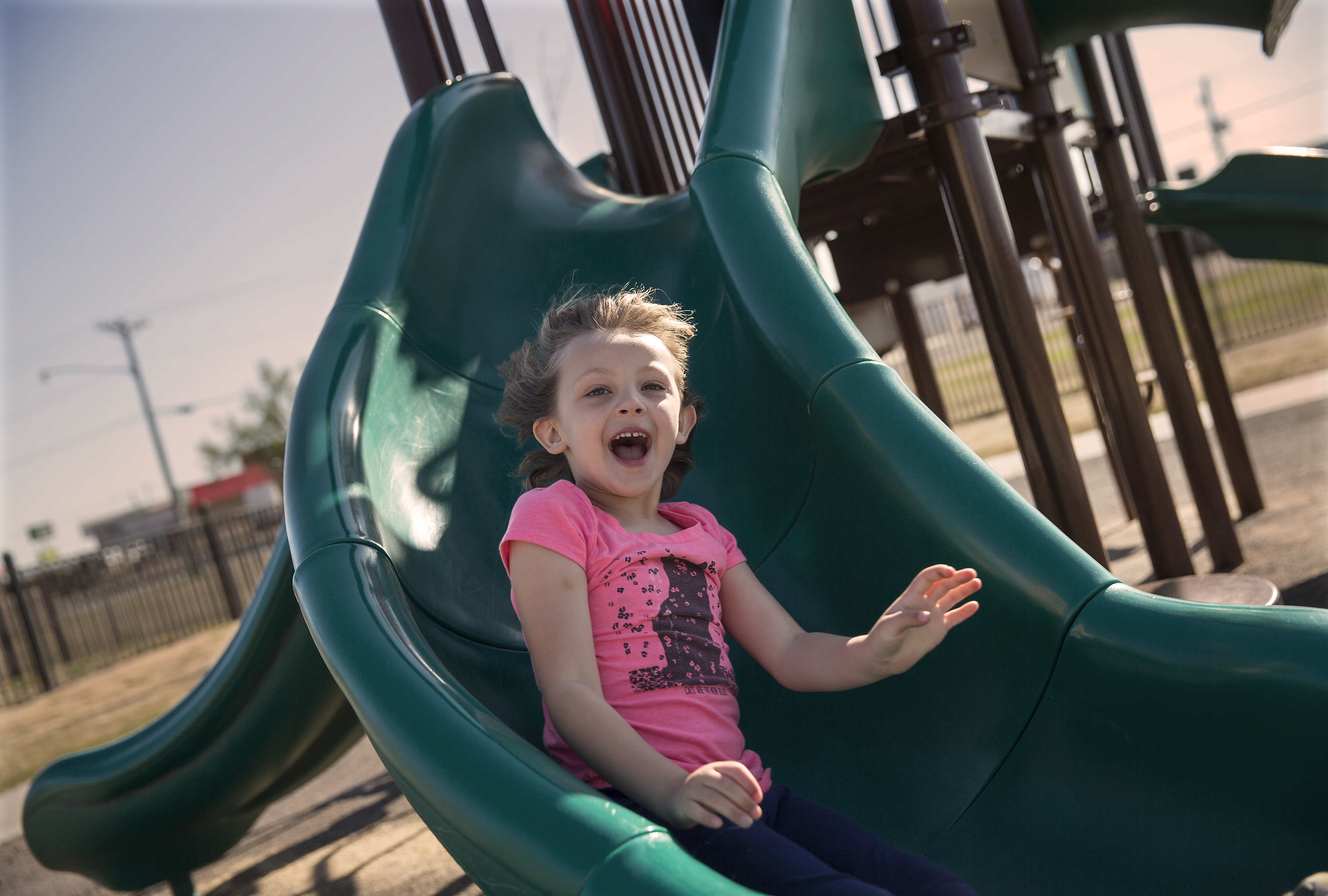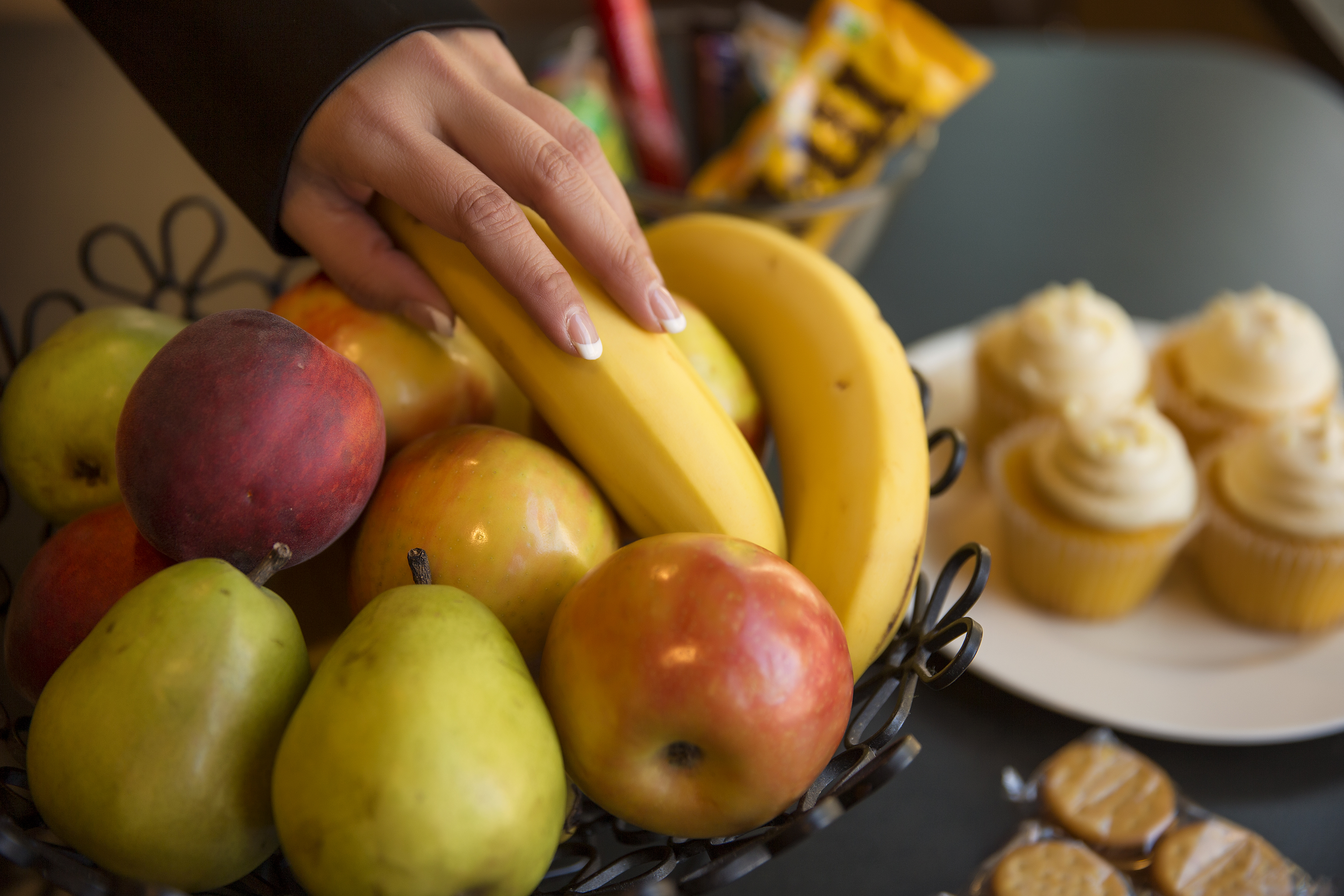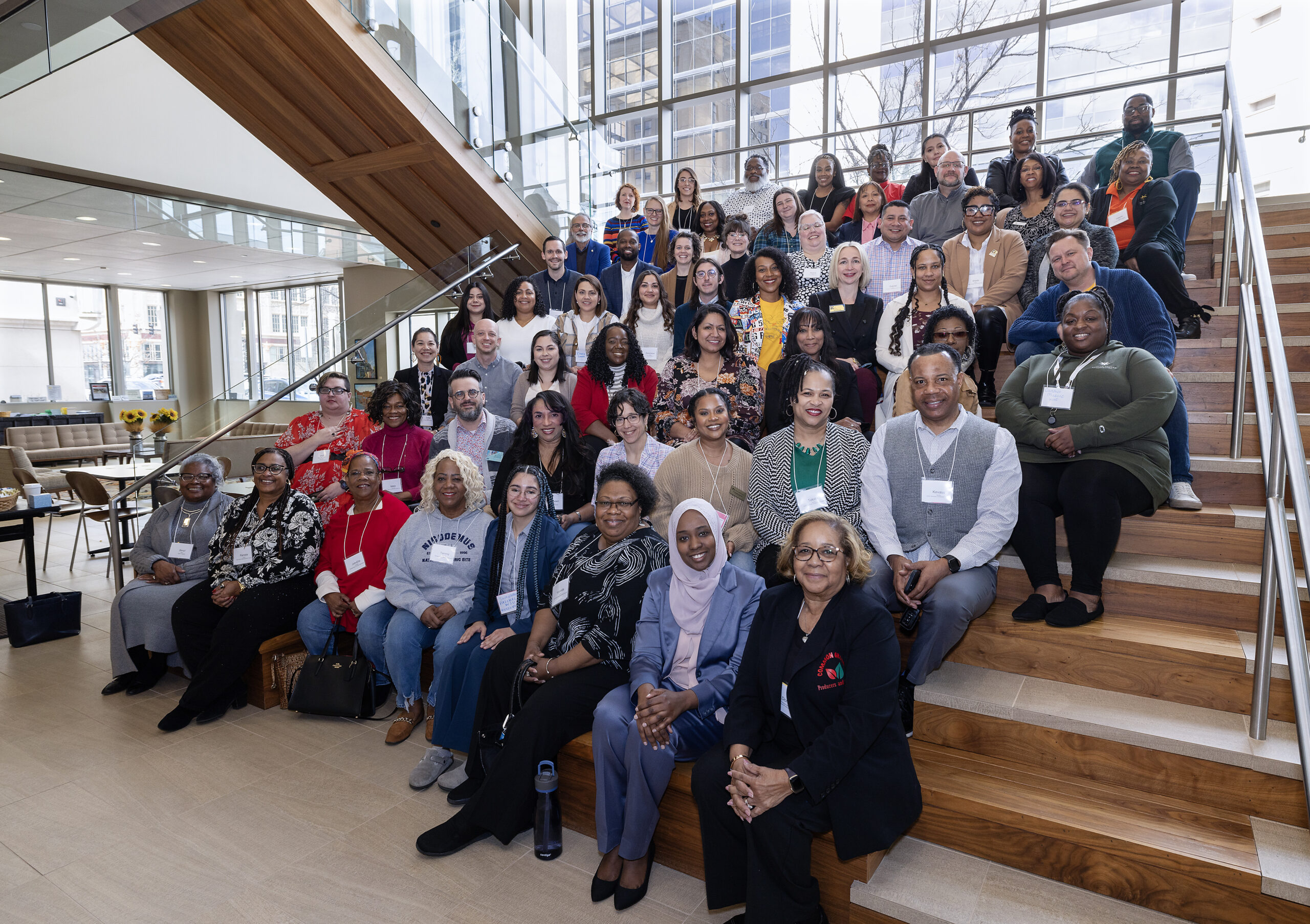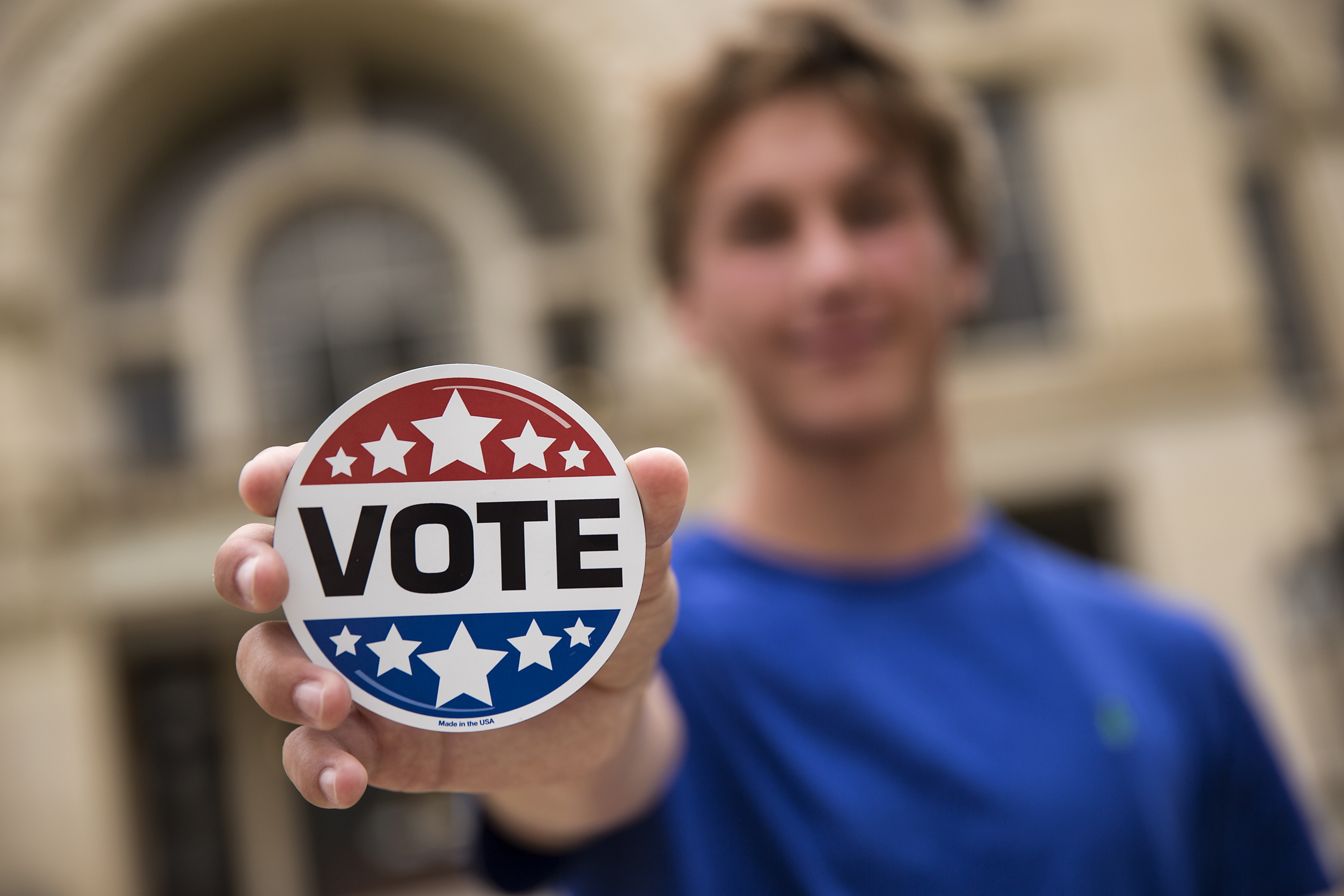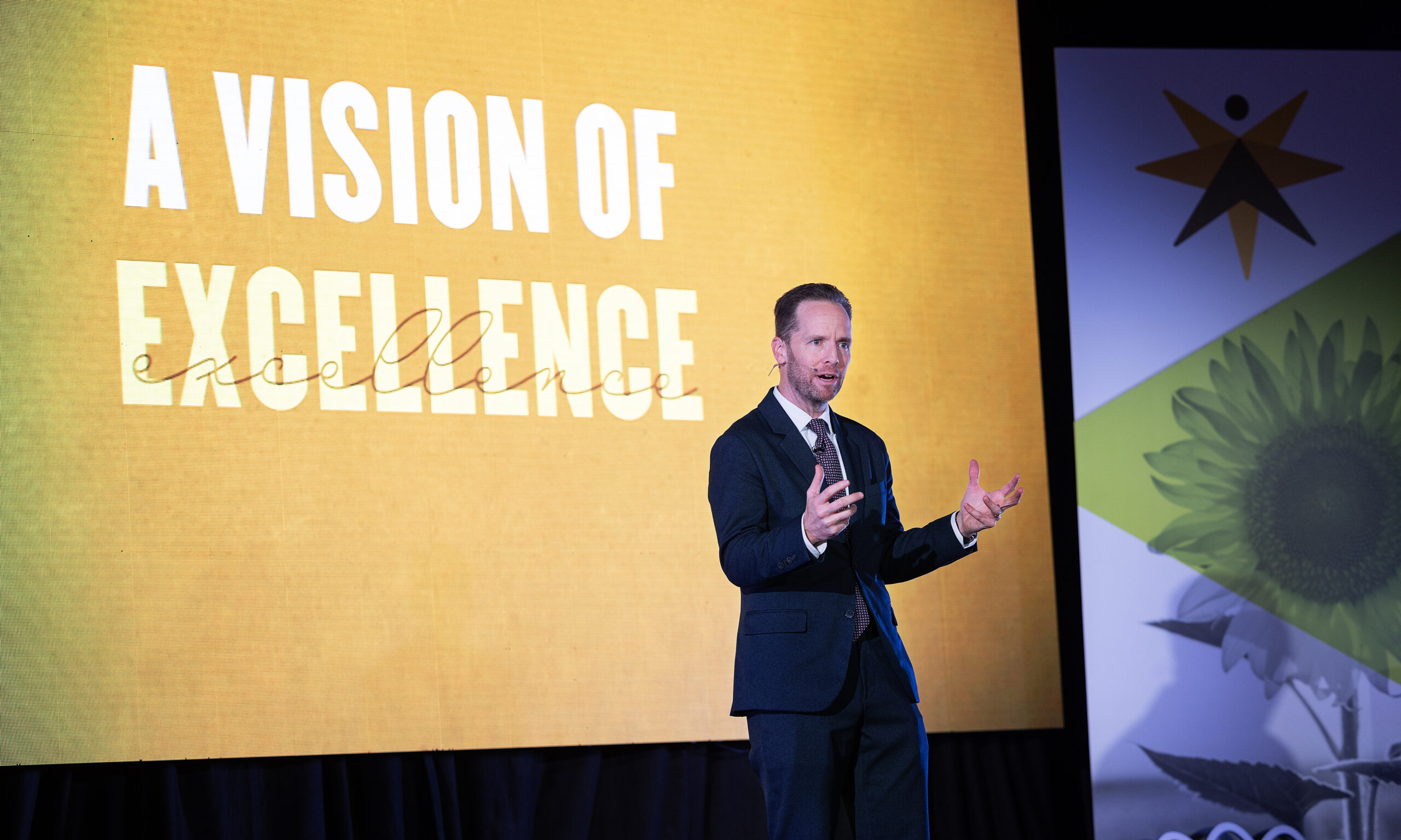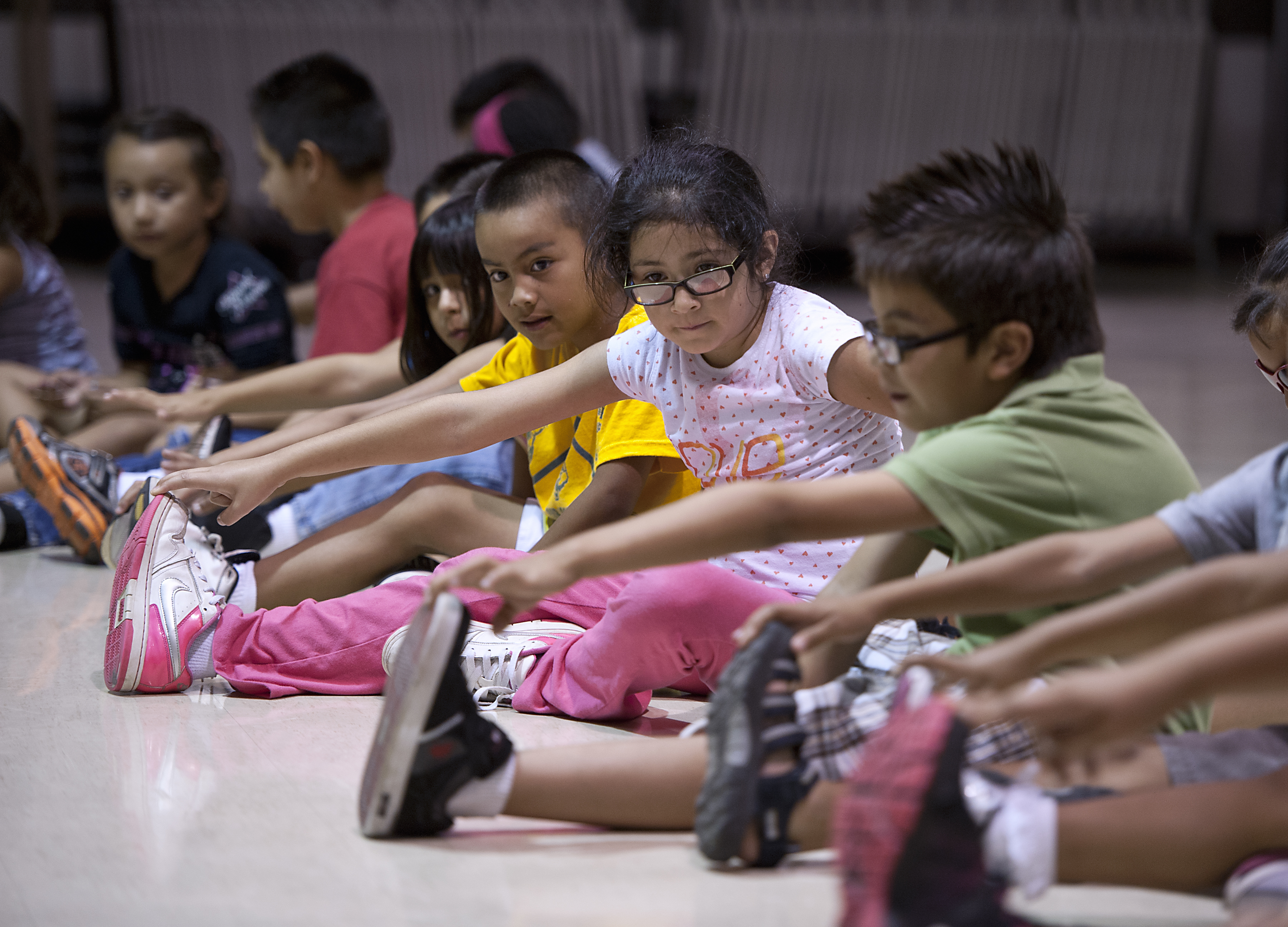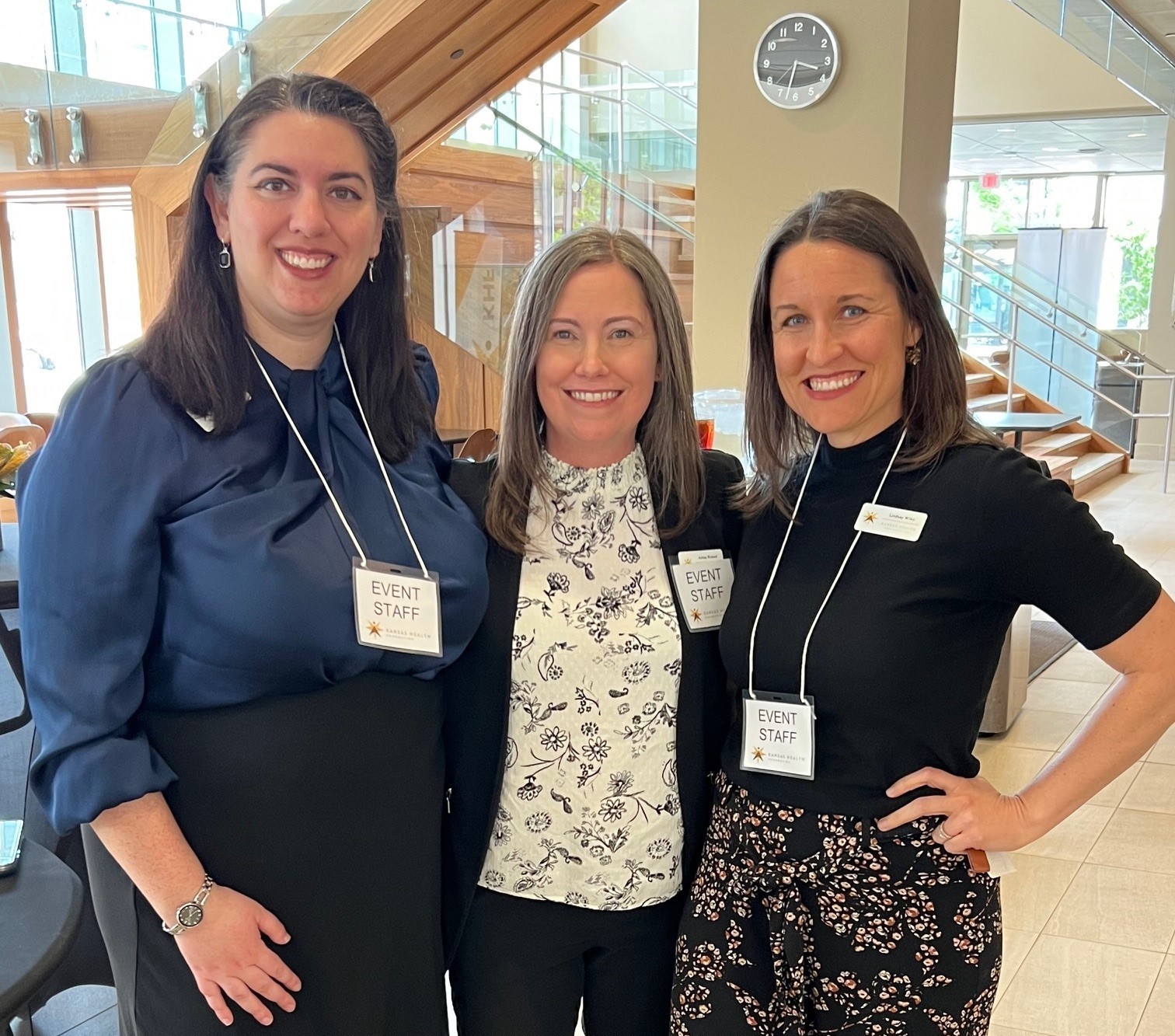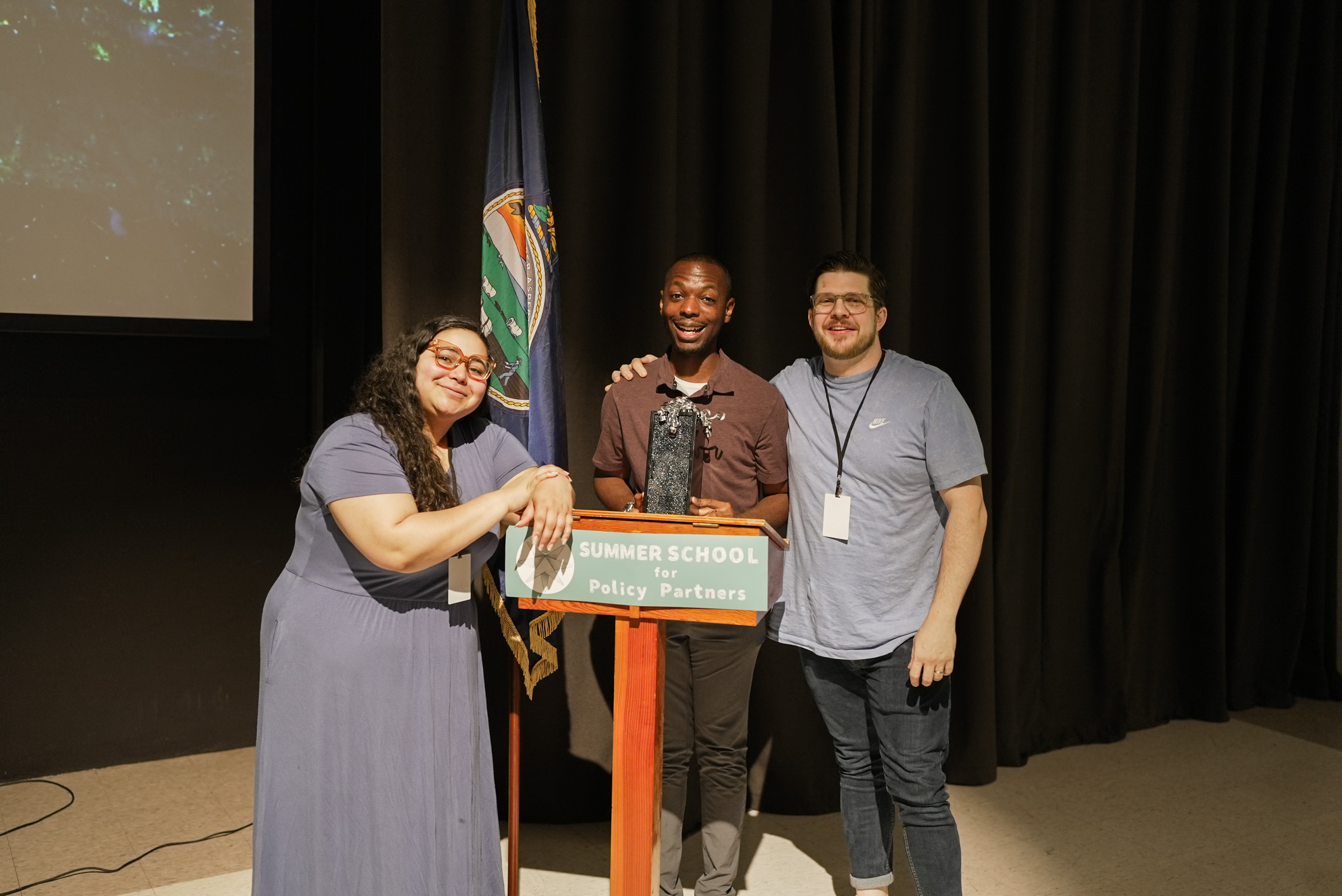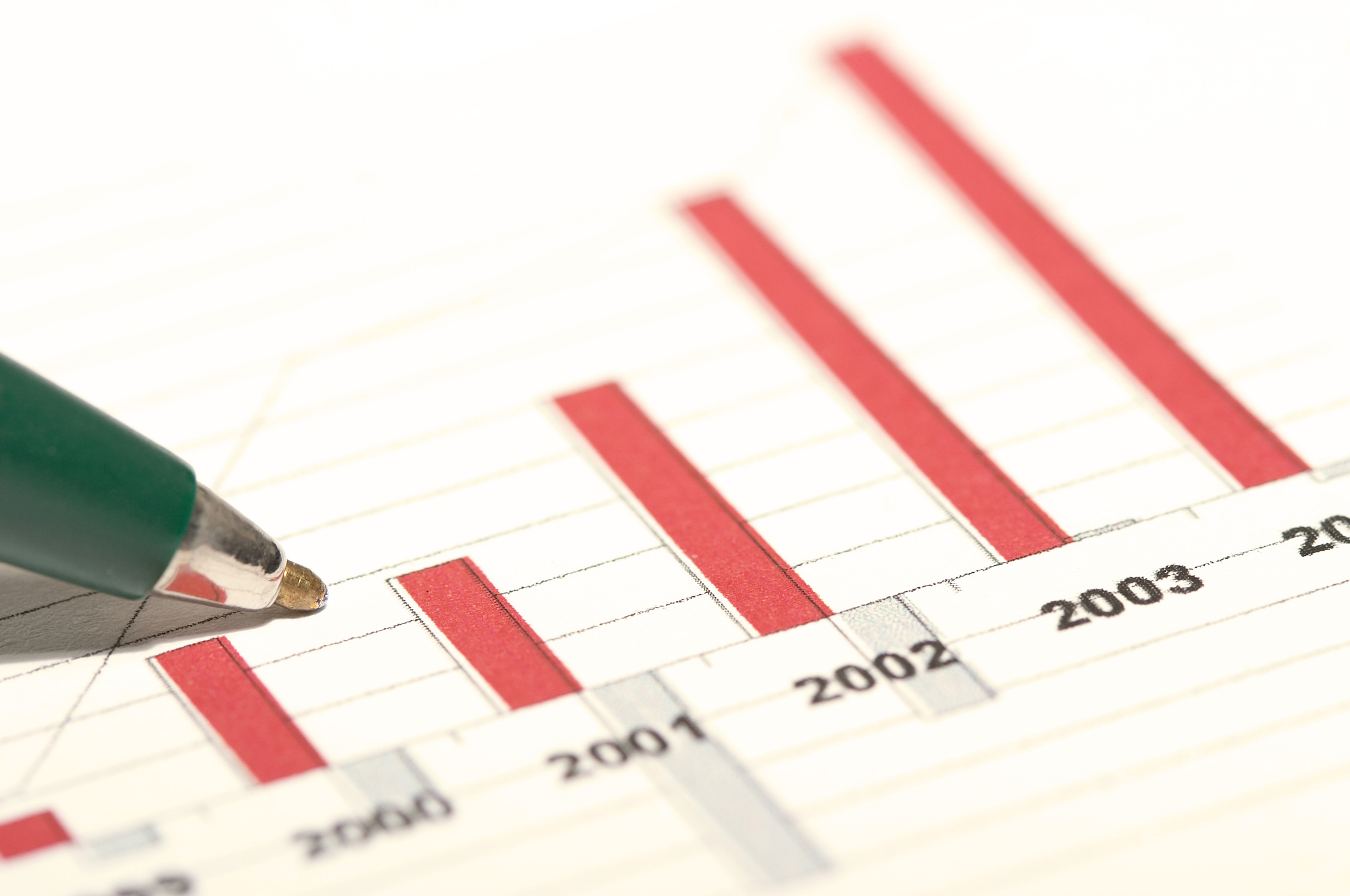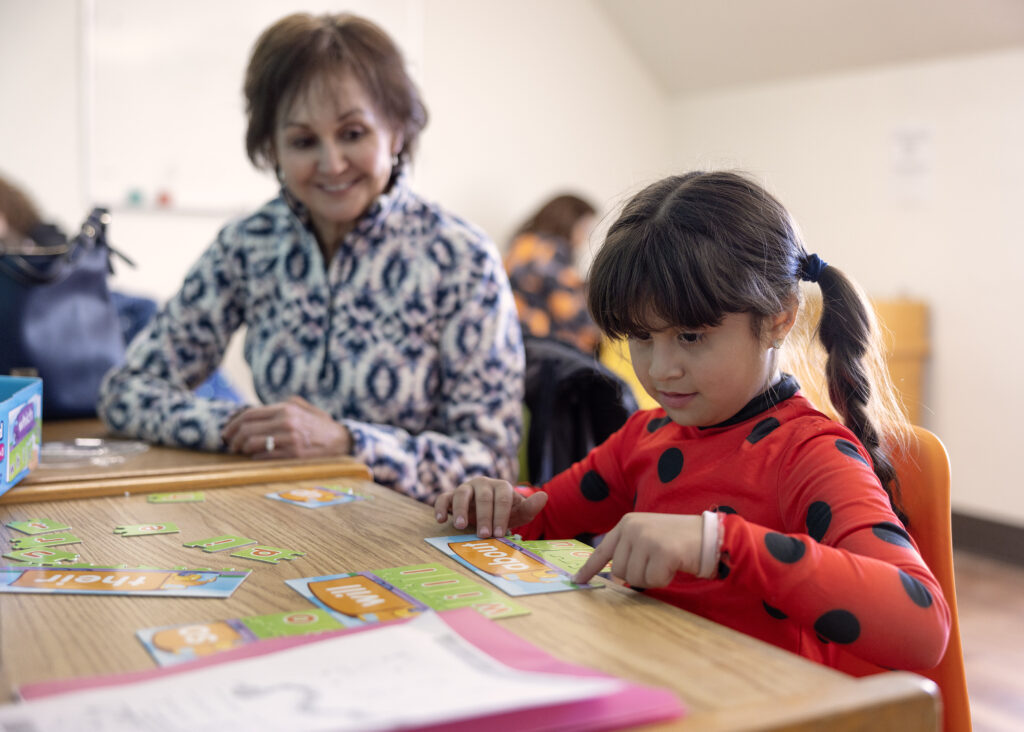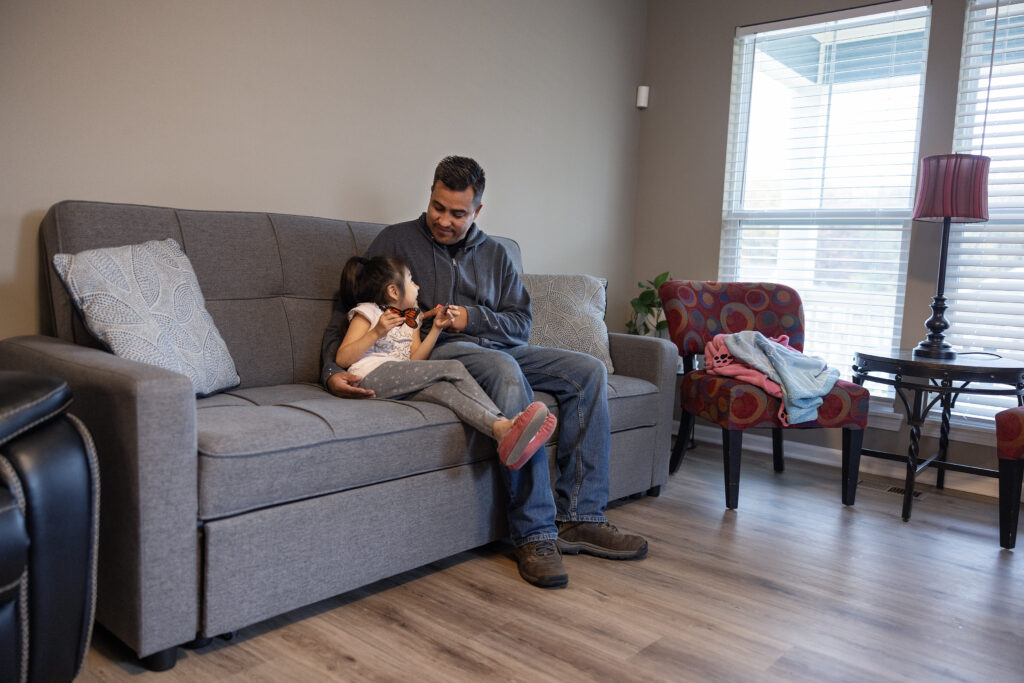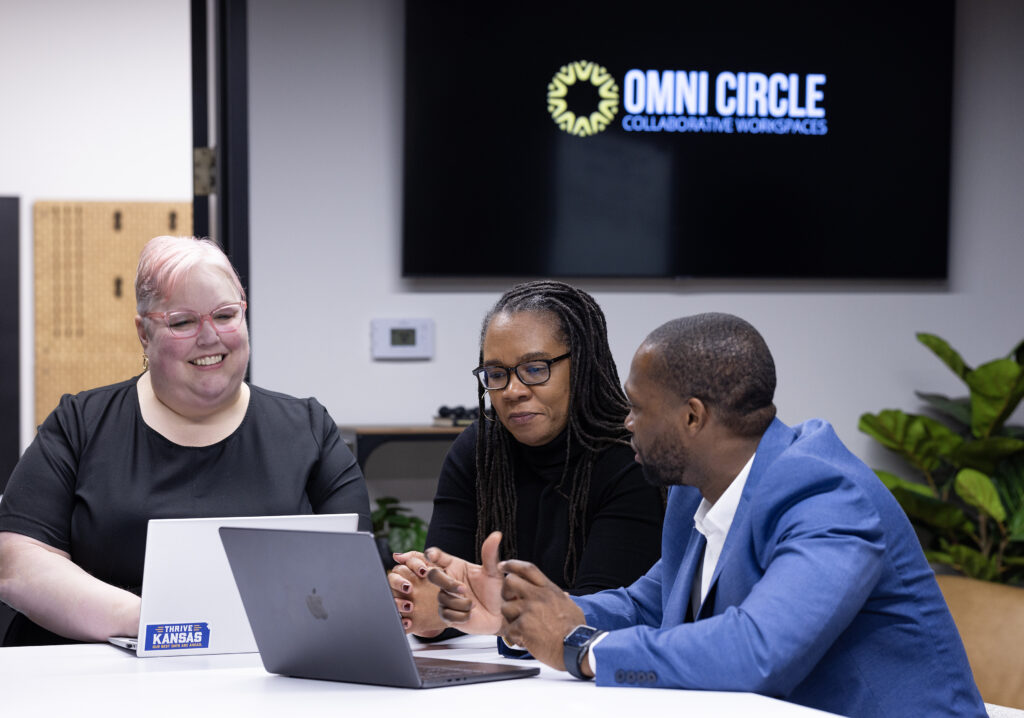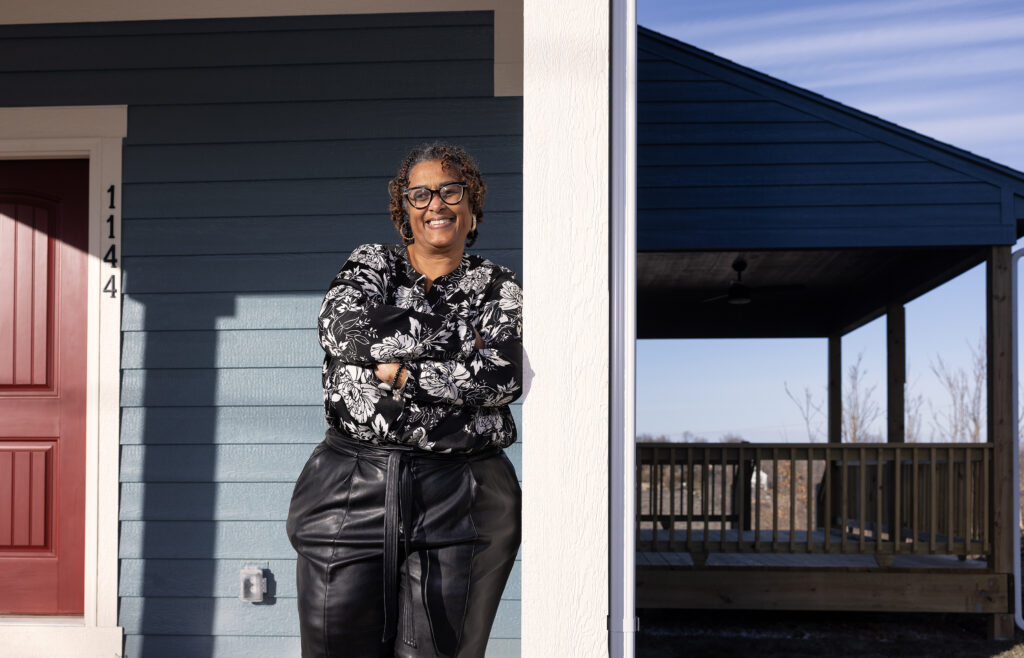This article is part of an ongoing series to chronicle the work of the 30 organizations involved in KHF’s Building Power and Equity Partnership (BPEP) initiative. To learn more about BPEP, click here.
Whether shared on the evening news, via social media, or by family and friends gathered on the porch, the stories of a community contribute to both its history and its future. These reports, legends, and anecdotes give residents and outsiders an impression of the experience of living there. According to Rev. Carter Ellis, Executive Director of The Hub Argentine, the narrative that has developed around Kansas City’s Argentine neighborhood is incomplete at best.
“Many of the stories that are told about our community are stories of scarcity,” Rev. Ellis said. “That we don’t have safety like other neighborhoods. We don’t have food security or access to healthcare in the same way. They talk about test scores being statistically lower than neighboring school districts.”
A resident of the Argentine, Rev. Ellis knows that these concerns are just part of the picture in her community, and that there is so much more to this singular, uniquely isolated neighborhood.
“What they don’t tell is the story of how diverse it is. How many students are trilingual — not even bilingual, but trilingual. The rich cultures that are here and the people that have so many gifts and talents that make this community what it is and what it can be.”
Inclusive Ministry
An independent nonprofit organization, The Hub Argentine is a ministry of the Northeast Kansas District of the United Methodist Church. In July 2020, Metropolitan Avenue United Methodist Church closed after 132 years of ministry in the Argentine neighborhood. Two new United Methodist ministries emerged in its place: Ushindi United Methodist Fellowship offering worship services in Swahili and Kinyarwanda, and The Hub, a community center that “celebrates God’s gift of diversity, and values the wholeness made possible in a community equally shared and shepherded by all,” as expressed by their welcome statement at thehubargentine.org.
“The Hub Argentine is dedicated to creating a diverse and inclusive community in the Argentine neighborhood, where health, wellness, and happiness can flourish,” said Juston White, director of institutional partnerships and special projects at the Kansas Health Foundation. “It represents a key aspect of the Kansas Health Foundation’s mission to promote a culture where all Kansans can make healthy choices in their workplaces, homes, and recreational spaces. The Hub is committed to bringing about meaningful improvements in health and racial equity within their community and beyond.”
The Hub Argentine was selected as one of 30 Kansas partner organizations that are participating in Kansas Health Foundation’s Building Power and Equity Partnership, established to address issues of racial equity and justice. With support from KHF — including grant funding, access to training, outside expertise, and third-party services — this cohort of grassroots organizations communicates and collaborates to advise and assist each other in addressing health disparities in Kansas. The Building Power and Equity Partnerships (BPEP) initiative is the largest single investment focused on racial equity in KHF’s history, with planned investments of up to $30 million during the next 10 years.
Vibrant Yet Isolated
Surrounded by highways that challenge physical access, the Argentine is located south of 70, east of 635, and west and north of I-35 on the south bank of the Kansas River in Wyandotte County.
The site of a former Shawnee Indian reservation, the Argentine district arose when the Atchison, Topeka and Santa Fe railroad established and expanded in the area in the 1870s. Development really picked up pace when Consolidated Kansas City Smelting and Refining Company built a smelting plant. The site was platted in late 1880 by James M. Coburn and named Argentine, “silver” or “silvery,” a nod to the rapidly growing industry that helped fuel its economy.
Historically a Mexican American neighborhood, it continues to be home to families who have lived here for generations, many since their ancestors followed the railroad up from Mexico in search of employment. Hispanic culture, however, is just one bright light in the vibrant diversity of the Argentine neighborhood.
“Seven or eight official languages are most commonly used in Kansas City, Kansas public schools, but there are more than 70 languages that kids speak at home and are their native languages,” Rev. Ellis said. “Our community reflects that diversity. We are about 60% Hispanic, 20% African American, 10% African and Asian, about 10% other, including white.
“The Argentine is often cut off from resources in the area, due in large part to our location. But that sets The Hub up for success with our programs and the type of work that we do because there is so much potential in our neighborhood. So many resources that could be amplified if everyone has the access to share their gifts.” The most valuable of these resources, says Rev. Ellis, is the people who live here.
Sharing Gifts
Inclusive and neighbor-focused, The Hub’s ministry is modeled on Asset Based Community Development, a strategy for sustainable community-driven growth. The approach encourages all community members to identify the assets (or “gifts,” as Rev. Ellis calls them), they each have to share with fellow community members, and to accept with gratitude those gifts others have to offer.
“This is a process that has been going on for centuries but became part of the academic landscape in the 1980s,” Rev. Ellis said. “Gifts and assets that already exist in a community can be exchanged and shared to make it a better place. We look at gifts as opposed to needs. With Asset Based Community Development, we ask what kinds of skills and passions our individual neighbors have to share.”
The gifts that neighbors in the Argentine have to offer vary broadly, a blessing that improves the lives of those who participate in endless ways. Perhaps one neighbor can fix just about anything — a car, roof, or computer. Another is skilled at sewing or accounting or painting. This neighbor enjoys cleaning and organizing. This one loves animals and is happy to care for pets. When they share “gifts,” all benefit — not just financially, but by improving the quality of life of everyone concerned as they build friendships and trust, strengthening the community at large.
Market-like exchange of gifts between neighbors is part of the strategy, but vital to The Hub’s success is growing a culture of caring volunteerism.
“Sometimes it means a neighbor helping clean up the Community Market or organize the Clothing Closet, or any number of tasks, so it’s the gift of time, the gift of energy,” Rev. Ellis said.
“The Hub has a diverse network of over 1,000 neighbors who are eager to see change in the community and are committed to working toward equity,” said White. “Over half of the volunteers, program leaders, and Board of Directors at The Hub live in the neighborhood and reflect the community’s racial and ethnic diversity. The community is involved in decision-making at every level of our organization.”
Programs For Equity and Community
“Much of The Hub Argentine’s work is rooted in telling stories about joy and abundance,” Rev. Ellis explained as she shared the impetus for all The Hub’s programming: These powerful stories flourish because of the human connections this community center facilitates and the resources it offers to all its neighbors allowing for more equity as basic needs are met.
In addition to creating a safe and welcoming place to gather, The Hub offers six programs and initiatives for residents of the Argentine. Two of these programs were established by the Metropolitan Avenue United Methodist Church and were inherited by The Hub when the church closed.
Once a more traditional food pantry, the Community Market is now a free grocery store where visitors can shop for their food, selecting what they specifically need. The number of families served by the market has grown from 20 to 110, with food donated by Harvesters Community Food Network, local churches, KC Farm School at Gibbs Road, Kanbe’s Market, and two stores in the neighborhood, the Dollar General and El Mercado Fresco, a predominantly Spanish-speaking grocery.
Jessica and Luis Perez are the parents of six children, aged three to 20. They first encountered The Hub when visiting the Community Market a little over a year ago. Now Jessica, who works with The Hub’s Listening Project, and her daughters — 10, 11 and 8 — are volunteers at the Community Market.
“We all love being involved,” she said. “I translate for people, English to Spanish, that’s what I know,” she said. “My 11-year-old loves to help in the market and closet. She stocks canned food, hangs clothes on hangers, and sweeps. It makes her feel good. My 3-year-old boy pitches in and everyone loves him! They help us here, but there is respect for everyone, from everyone.”
“All of our other programs were started using the gifts of our neighbors,” Rev. Ellis said. “One of the first things I did when I got to The Hub was to knock on doors in the neighborhood, so I would meet neighbors and often get sent home with bags of fresh tomatoes. I knew early on that the gift of gardening ran deep in the neighborhood, and we had a plot of land on the corner that wasn’t being used, so we invited gardeners to plant and young parents came, too, because the garden was something they wanted and didn’t have.”
The Community Garden is entirely run by neighbors, and anyone can partake of it. Visitors are welcome dawn to dusk to gather ingredients for dinner, pick some fresh veggies for their children, or grab a fresh snack as they walk by. Community Garden volunteers recently partnered with the Giving Grove to plant an orchard, and everyone involved is excited for this project to bear fruit.
The Clothing Closet offers free apparel during scheduled “shopping” hours three times a week and visits by-appointment. There is also a shower available for neighbors to use at The Hub during set hours three days a week or by appointment. Toiletries and towels are provided, as well as a fresh outfit from the Clothing Closet. Neighbors can take a hygiene kit for the road.
Modeled after the popular social media campaign “Humans of New York,” the Neighbors of Argentine program was originally designed to connect people and tell stories of neighbors during the Covid pandemic. A series of profiles of Argentine community members, and discussions about topics that encourage participants and viewers to envision the district’s future, can be viewed at thehubargentine.org. The program was so popular that the team decided to continue it. In the summer of 2024, The Hub started a Listening Project to connect with more neighbors and match neighbors’ gifts to places of growth in the community.
“We’ve got a group doing interviews right now, a listening project to get to know neighbors in the community, and what the community wants and needs,” Rev. Ellis said. “They are sharing their unique gifts in this work as their neighbors share the gifts of their stories.”
The Adventure Academy is an after-school program for elementary school students on Tuesdays, Wednesdays, and Thursdays. Students in the program enjoy healthy snacks, playtime, art activities, leadership development, physical activities, spiritual growth, and field trips each week, as well as one hour of tutoring. Response to the program has been enthusiastic enough for sessions to require a waitlist.
Argentine neighbor Omar Fernandez has two daughters, a six-year-old who is currently attending the Adventure Academy, and a 12-year-old who graduated from the program and is now a volunteer there. A cook at a nursing home who “works all of the time,” due to staff shortages, Fernandez, with his wife, Adalgisa, sought a safe, nurturing place for their daughters where they could have access to activities and learning experiences after school. Excited about the change he sees in his children, Fernandez also recognizes grassroots growth in his community, thanks to the values children are learning from this program.
“My oldest daughter was very active, and my youngest was very shy,” he said. “This has helped my family by helping my daughters understand their community, and how they are a part of it. My oldest no longer attends because she’s old enough now, but she volunteers there every Thursday. (The Hub is) helping the community by bringing them together, showing the little kids how to behave, how to cooperate with all the neighborhoods and all the neighbors. Now, my youngest daughter is so happy, developing and growing as a person. She is so open and wants to help others.”
Fernandez encourages this spirit of sharing in his daughters and gives freely of his limited time, pitching in to assist neighbors with repairs and clean-up projects.
“I always tell my daughters to give what they have. Others give us so much. Our time is what we have to give back,” he said. Omar’s daughters are the third generation of his family to live in Argentine.
At The Heart of The Hub
The Rev. Carter Ellis arrived to take the helm at The Hub in 2020, during the Covid-19 pandemic. An ordained elder in the United Methodist Church, she served at several different churches in Western North Carolina before moving to Kansas City. She is a graduate of Vanderbilt Divinity School and Wake Forest University. Rev. Ellis and her wife, Lora, live in a 100-year-old house in Argentine with their two dogs, Winnie and Dottie. She cherishes the opportunity to meet people and hear their personal stories. Deeply invested in the Asset Based Community Development strategy, she relishes the chance to help her Argentine neighbors discover their gifts and bestow them on others.
“I love people. I love hearing them claim parts of themselves that they haven’t seen as valuable before,” enthused Rev. Ellis. “I’m a United Methodist pastor, so I’m a person of faith, and so for me it’s helping them see themselves as God sees them, and then using their gifts to bring about community change — to make the world as God sees it. But the people, the neighbors getting to receive the gifts of the community, is something that brings me great joy as well, because you never know how people are going to share their gifts with you each day.”
With the addition of Program Coordinator Andrea Villeda, The Hub Argentine staff has recently grown to a team of three. Rev. Ellis now has more time to focus on building deeper relationships with neighbors in the community. Fundraising to ensure that the organization can continue serving Argentine and fulfill the team’s goals of expansion are another priority for her.
Villeda oversees The Hub’s programs, making sure there are always supplies to keep the Community Market, Community Closet and other programs going, coordinating volunteers for all initiatives, and making sure they have everything they need to live into their mission.
Operations Coordinator Lexie Rios oversees the day-to-day operations, logistics, and communications, which can be complicated as The Hub shares the three story, 130-year-old building with five other tenants. “I’m so grateful I have their support, so we’re poised to do what we need to do every day,” Rev. Ellis said.
At the heart of The Hub are the volunteers, who take on a lion’s share of the work. The team is especially dependent upon volunteers during the school year, when the Adventure Academy is running. Between 40 and 50 regular volunteers come in to assist every week with a certain role to play. Whether that’s for an hour and a half or five hours, those regular volunteers are the engine that drives The Hub. That’s how the organization was designed.
“One of the things that’s special about our organization is that at least 50% of leadership — whether that’s our board of directors, the leaders that run the programs, leadership teams for our programs, or volunteers who live in the neighborhood — are a part of the community,” Rev. Ellis said. “We really want the organization to be the vision of, and led by, neighbors and residents in the Argentine community.”
A volunteer who lives in Lenexa, Sandy Finney is retired and teaches ESL (English as a second language) and reading at The Hub. She is moved by how much the organization has grown under the guidance of Rev. Ellis, and grateful for the chance to give.
“This has always been a diverse community,” she said. “But since Carter has been out visiting with neighbors, we’ve seen an even broader variety of residents at The Hub. People realize that they are welcome, that everyone is. It’s really fun to watch folks communicate with each other in our big waiting room. They all get acquainted and enjoy each other while they’re waiting to get their groceries or to volunteer. I have gained so much from being here.”
Looking To the Future
The Hub team is excited about the progress they’ve made and inspired by what the future holds, with expanded staff and more dreams to realize, thanks to their participation in the Building Power and Equity Partnership.
“It’s going to radically transform the impact of our organization,” Rev. Ellis said. “It’s gotten us to think about what we’ll be able to do in 10 years, thanks not only to this funding, but because of the coaching and guidance available to us. This opportunity allows us to strategize and go deeper into the community to really combat the issues of racial and health inequity.
“One of the markers of a healthy and thriving individual is if they have a community around them, and its diversity can be an incredible asset to the community, and it can also be a barrier to the community. The Hub’s primary role is serving as a connecting organization between neighbors to the assets and resources that are already in the community and connecting individual neighbors to each other across language barriers, documentation status as well as the class, racial, ethnic and economic divisions that lie within communities. By pooling our gifts and passion for the community, we can really address those systemic and root causes that divide us.”
As The Hub continues to grow, the team has observed the meaningful roles that food plays — cultural and nurturing — when people gather. It is a necessity and a pleasure that transcends all ages, all belief systems, all classes, all language barriers. The Argentine neighborhood is brimming with cooks from a plethora of backgrounds who find satisfaction in sharing their gifts of culinary prowess. An event to celebrate these talents, Tastes of Argentine, is a community meal, free to all, featuring sample size portions of native or family treats prepared by cooks from Mexico, Congo, Honduras, Guatemala, and Pakistan.
“It’s amazing how community can be built when it’s shared around a table together, and barriers between race, ethnicity, language, and gender can be broken,” Rev. Ellis said. “We learn a little bit more about where each of us come from, and it was delicious, too.”
Community dinners of this kind are an ideal way to gather neighbors to share and learn. The Hub team would like to host them once or twice a year. And so many of these cooks could create a business based on their culinary assets. Maybe The Hub could help. One challenge stands in the way of these projects: the need for a fully equipped and licensed commercial kitchen. The Hub’s building has a kitchen, but it is in dire need of repairs and updates. So, in February 2025, The Hub Argentine will host a gala to raise the $400,000 needed to create a commercial kitchen for neighbors to use.
“Facilitating neighborhood entrepreneurship seems like the ultimate way to help neighbors share their gifts,” Rev. Ellis said, “while they create new memories and uplifting stories for their families and Argentine.”

